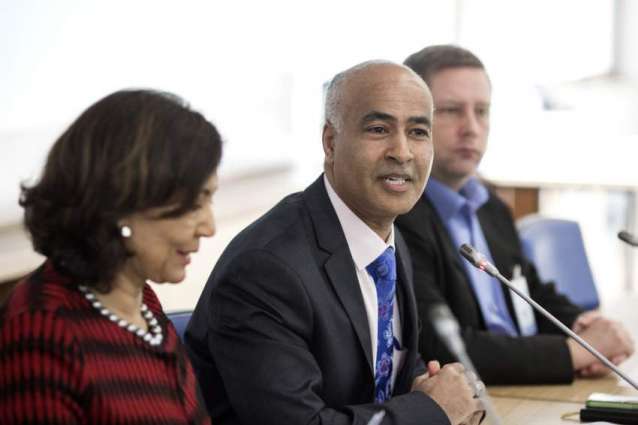Immediate action to tackle global warming is necessary to support efforts to end world hunger, because after a 2 degree Celsius (3.6 degrees Fahrenheit) increase in temperatures it would become more difficult to sustain these efforts, Zitouni Ould-Dada, the deputy-director of the Climate and Environment Division of the UN Food and Agriculture Organization (FAO), told Sputnik on Wednesday.
MOSCOW (Pakistan Point News / Sputnik - 10th October, 2018) Immediate action to tackle global warming is necessary to support efforts to end world hunger, because after a 2 degree Celsius (3.6 degrees Fahrenheit) increase in temperatures it would become more difficult to sustain these efforts, Zitouni Ould-Dada, the deputy-director of the Climate and Environment Division of the UN Food and Agriculture Organization (FAO), told Sputnik on Wednesday.
On Monday, the United Nations' Intergovernmental Panel for Climate Change (IPCC) released a report calling for drastic action to limit global warming to 1.5 degrees Celsius by 2030 instead of the 2 degrees Celsius target agreed in Paris in 2015. The report outlines how limiting global warming to 1.5 degrees Celsius would result in a reduction in the net decrease of food availability and crop yields. Furthermore, if the 1.5 degree Celsius target is exceeded, the adverse effects on the food sector of global warming could exacerbate existing hazards to the global population, as well as create new ones.
"The world should aim to limit global warming to well below 2 degrees and, if possible, to 1.5 degrees. The more we can limit global warming, the better. This IPCC report sounds an alarm bell for the entire world and stressed the need for transformative and immediate action. With a 2-degree increase ending hunger will become extremely challenging, that's why immediate action is so urgent," Ould-Dada said.
The deputy director added that a difference in global temperatures equal even to half a degree would have an impact on food security.
"Although it's hard to say exactly how a half degree could affect the agricultural sectors and global food security, we can certainly say that it will," Ould-Dada said.
He stated that events related to climate change, such as the change in rainfall patterns and rise in sea levels, affected the ability to produce healthy and sufficient food. According to the FAO, 821 million people suffer from hunger, and the constant rise in population will increase the demand for food.
Ould-Dada added that the FAO works on an international and country-by-country basis to provide solutions to issues related to climate change.
"FAO, with its experience and expertise in issues related to agriculture, is working with countries on the ground as well as playing a significant role in the international arena to step up climate change adaptation and mitigation programmes. FAO is involved in local context specific solutions; for example, agroforestry and reducing deforestation, sustainable livestock management and reducing food loss and waste," Ould-Dada said.
Other UN organizations have come out in support of the IPCC report such as the UN Framework Convention on Climate Change (UNFCCC), which on Monday said that meeting the 1.5 degree Celsius target could also be a significant step toward achieving the UN Sustainable Development Goals.




